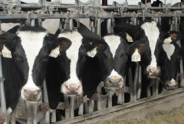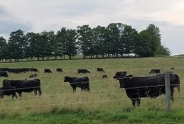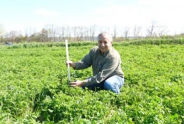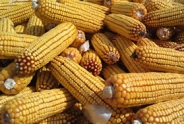Staffing and Organizing Your Team
Event Details
Date
June 22, 2023
June 29, 2023
July 6, 2023
July 13, 2023
July 20, 2023
July 27, 2023
Time
3pm-4pm
Location
Webinar
Host
Cornell CALS
Course applicable to all agricultural commodities
Cornell Agricultural Workforce Development has opened registration for Staffing and Organizing Your Team, a six-week course in the Supervisory Leadership Certificate program. Staffing and Organizing Your Team materials release June 16, 2023 and live weekly Zoom discussions will be held from 3 to 4 PM ET each Thursday from June 22 through July 27, 2023. Participation in the live sessions is highly encouraged and provides a valued opportunity for peer-to-peer learning and networking. Registration is $275 and closes June 16. Continuing education credits are now available for this course and the Supervisory Leadership Certificate program. Course topics include: becoming a preferred employer, personnel planning, job descriptions, recruiting and interviewing, hiring and onboarding.
Who should attend?
This course, and the whole certificate series, is appropriate for both new and experienced farm supervisors and managers, and those preparing to become supervisors. All participants will learn leadership concepts and practice skills that will improve their ability to build a positive workplace and get results through leading others. Past course participant management experience ranges from a few years to over 20 years. All participants say the course content made them more effective at their job.
From the comfort of your home or office, watch prerecorded presentations on your own schedule, and engage with classmates and instructors during weekly, live discussion sessions. Corresponding assignments are due each week. To get the most out of the experience, expect to spend approximately two hours per week on lessons and assignments.
Direct questions to Rachel McCarthy, Agricultural Supervisory Leadership Coordinator, at rachel.mccarthy@cornell.edu.
Learn more about the Agricultural Supervisory Leadership certificate program
Supervisors are critical to the success of farm businesses. They have a major impact both on employees' daily work experiences and on the production performance of the business. The Agricultural Supervisory Leadership certificate helps farm supervisors and managers learn and apply human resource management practices and leadership skills that foster rewarding workplaces and drive business results. Confident managers who thoughtfully apply leadership and management skills improve employee performance, develop teams, reduce employee turnover, and increase employee engagement. The courses within the certificate program will offer extensive practice and engagement activities to build confidence and skill sets.
Each course includes up to six weeks of instruction on topics that will build your leadership and management skills. Instruction includes a combination of pre-recorded lectures, reading assignments, written exercises, live discussion sessions and quizzes. For those looking to learn more on a particular topic, supplemental videos and articles may be recommended by the instructor. To get the most out of the course, students should plan to spend two to four hours each week on combined course activities.
Courses in the Agricultural Supervisory Leadership certificate include:
- Transitioning to Supervisor: Develop essential communication skills and manage conflict. Lead a multi-cultural team. Build an effective workplace culture.
- Organizing Work for High Quality Results: Develop clear expectations and standard operating procedures. Delegate effectively. Diagnose and correct performance problems.
- Managing Performance: Understand motivation. Harness the power of performance feedback and coaching. Build clear and effective workplace communications. Set safety expectations. Conduct effective performance improvements.
- Staffing and Organizing Your Team: Develop job descriptions. Learn how to find potential employees, interview and select the right people. Implement new hire documentation, employment authorization, and onboarding: bringing new employees into the business successfully and productively.
- Employee Development and Training: Identify training needs. Understand learning styles. Design and plan learning experiences that accommodate learner needs. Develop effective training skills and techniques. Evaluate learning results and training effectiveness.
- Ethics and Employment Regulations for Supervisors: Implement responsible and ethical labor practices and understand why this matters for agriculture. Recognize and prevent sexual harassment. Understand and follow minimum wage and overtime laws. Implement Equal Employment Opportunity laws to prevent discrimination and harassment. Use an employee handbook. Handle employee discipline and termination.
Course instructors include:
Richard Stup, Cornell Agricultural Workforce Development Specialist
Elizabeth Higgins, Ag Business Management/Production Economics Extension Specialist with the Eastern New York Commercial Horticulture team
Libby Eiholzer, Dairy Technical Specialist, Cargill
Bob Milligan, Cornell University Professor Emeritus
Kaitlyn Lutz, Bilingual Dairy Management Specialist
Transitioning to Supervisor students say:
All modules had great value. It got me to rethink some things. The elements fit together pretty well, building upon each other. The breakout rooms were good. I liked the variety of learning. I found the country differences extremely valuable to better understand our multicultural workforce. Communication lessons gave perspective on different ways to communicate effectively with your team. The lesson with power distances was helpful to teach different ways people of other countries view topics. I really enjoyed the videos during the course and being able to ask questions to instructors and getting a quick response. The self-evaluation to find out what kind of a supervisor you are was helpful.
Organizing Work for High Quality Results students say:
All the aspects of the course were good. The weekly zoom meetings I think are important. The break-out sessions were very useful. It allowed us to discuss similar issues with peers. I thought the course was great. I liked being able to ask questions to instructors and getting a quick response.
Cornell Agricultural Workforce Development's mission is to help farms and agribusinesses build committed and effective teams who will carry out the important work of feeding the world. We believe that agricultural work can, and should be, engaging and rewarding for everyone involved. Managers can build committed teams by applying the best human resource management practices for the agricultural setting. Key program goals include:
- Provide leadership and management development education focused on farm supervisors, middle managers, and owners
- Clarify workforce regulations that apply to farms and increasing levels of compliance
- Build consistent channels of communication and learning opportunities about agricultural workforce issues
- Conduct research into workforce problems and challenges that confront agriculture
Upcoming Events
Avian Disease and Highly Pathogenic Avian Influenza - The Latest Updates and What It Means for Poultry Health
March 18, 2025
Colostrum and Calf-Hood Technology Dinner Meeting
March 19, 2025
Morrisville, NY
Field Crops and Vegetable IPM Roadshow
March 25, 2025 : Field Crops and Vegetable IPM - CCE Herkimer County
Herkimer, NY
2.0 DEC credits (1a, 10, 21, 23)
2.0 CCA Credits (Pest Mgmt)
March 25, 2025 : Field Crops and Vegetable IPM - Farm Credit East, Cooperstown
Cooperstown , NY
2.0 DEC credits (1a, 10, 21, 23)
2.0 CCA Credits (Pest Mgmt)
March 26, 2025 : Field Crops and Vegetable IPM Roadshow - CCE Madison County
Morrisville, NY
2.0 DEC credits (1a, 10, 21, 23)
2.0 CCA Credits (Pest Mgmt)
March 26, 2025 : Field Crops and Vegetable IPM Roadshow - CCE Chenango County
Norwich, NY
2.0 DEC credits (1a, 10, 21, 23)
2.0 CCA Credits (Pest Mgmt)
March 27, 2025 : Field Crops and Vegetable IPM Roadshow - CCE Saratoga 4-H Training Center
Ballston Spa, NY
2.0 DEC credits (1a, 10, 21, 23)
2.0 CCA Credits (Pest Mgmt)
March 28, 2025 : Field Crops and Vegetable IPM Roadshow - CCE Fulton-Montgomery County
Fonda, NY
2.0 DEC credits (1a, 10, 21, 23)
2.0 CCA Credits (Pest Mgmt)
March 28, 2025 : Field Crops and Vegetable IPM Roadshow - CCE Schoharie County
Cobleskill, NY
2.0 DEC credits (1a, 10, 21, 23)
2.0 CCA Credits (Pest Mgmt)
Announcements
Sign Up for Our Weekly E-Newsletter
We send out a bi-weekly e-newsletter that has announcements, upcoming programs, and opportunities for you! Registration is quick, easy, and free. Click here to sign up today!Document and Share Storm Damage
Mother nature has really been difficult over the last few days. Significant damage has been seen throughout NYS. Please let us know what types of damage your farm may have sustained during this time. This could be in the form of property damage, lost power, milk dump due to lost power, loss of livestock, loss of stored feed or growing crops.Farms are encouraged to DOCUMENT AND SHARE any impacts the weather may have had on their home or business. This could include structure damage, crop loss, inventory loss due to power outages, damage to equipment or fencing, and more.
If your farm experienced any sort of damage, please reach out to any of the folks listed below (or all of them). The more impact information that is collected, the greater the likelihood of a disaster declaration which can bring vital emergency support and awareness. The CNYDLFC Team will continue to collect detail and submit to NYSDAM and the EDEN network.
Reporting Weather Related Impacts (For your home or farm business)
- First, ensure that all the people and animals on your farm are safe, and that there aren't any unsafe working conditions created because of the weather (check your structures!). If there's an emergency, call 911 - don't try to manage it all on your own.
- Second, document all negative weather impacts for your farm and their estimated financial cost. Take photos, make estimates, and put it all in a safe place.
- Reach out to your insurance providers - farm, vehicle, crop, etc. to initiate the claim process as needed.
- Then, share your farm's damage with any (or all) of the ag support agencies listed below. We all work together to collect storm damage information and funnel it up to Ag and Markets which can initiate a natural disaster declaration.
- Chenango: 607-334-5841
- Fulton/Montgomery: 518-853-2135
- Herkimer: 315-866-7920
- Madison: 315-684-3001
- Otsego: 607-547-2536
- Schoharie: 518-234-4303
- Saratoga: 518-885-8995
- Erik Smith: 315-219-7786
- Daniela Gonzalez: 315-749-3486
- Ashley McFarland- 315-604-2156
Your county USDA/FSA service center.
- Chenango: 607-334-3231
- Fulton/Montgomery: 518-853-4015
- Herkimer: 315-866-2520
- Madison:315-824-9076
- Otsego: 607-547-8131
- Schoharie: 518-295-8600
- Saratoga: 518-692-9940
Your county farm bureau manager
- Region 3: Bailey Coon: 518-937-0566
- Region 5: John Wagner: 315-761-9770
- Region 6: Natally Batiston: 518-937-0269
- Region 7: Todd Heyn: 518-431-9338
Please let us know how we can help you.
Cash Rent and Custom Harvest Survey
To date, there is limited information available about rental rates and fees for crop harvesting. Farms can use this valuable information for their farm business planning to help improve decision making and profitability.Farmers Can Join MeatSuite For Free!
MeatSuite.com is a free resource provided by Cornell University where NY meat farmers can create a farm profile and list their bulk (wholes, halves, quarters) and bundled (i.e. Grilling Bundle) meat products.Why should farmers join?
1. It's free and easy!
2. Connect with more local customers. In the past year the MeatSuite.com farm directory had 8,300 visits from New York consumers. Farm profiles get as many as 25 views per month from potential local customers. We also spotlight MeatSuite farms on social media and bring attention and purchases to farms through highlights and giveaways.
How do I join?
Farmers can visit https://www.meatsuite.com/farmers/ to create a free farm profile. You must list at least one product for your farm's profile to go live. You'll also have access to Cornell's free Meat Price Calculator, a helpful tool for pricing your meat to make a profit.
While you're on MeatSuite, check out the "Creating Consumer-Friendly Bulk Meats" publication on the log-in page. It has tips on how to create bulk meat products that are easier for first-time buyers to say "yes" to.
If you have any questions as you create your farm profile or products, we're here to help! Please email Matt LeRoux at mnl28@cornell.edu.





